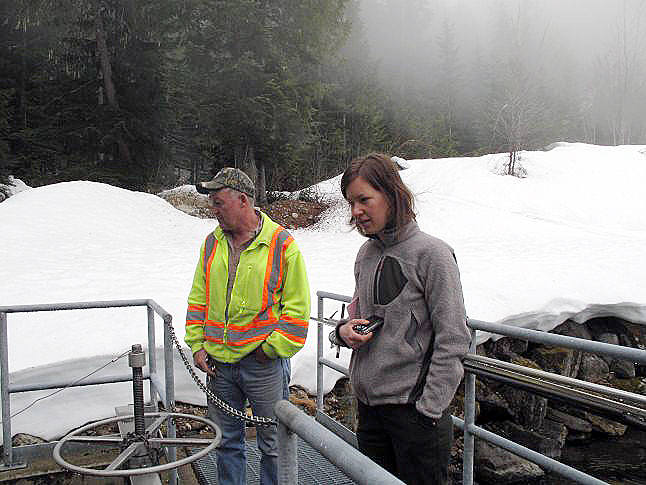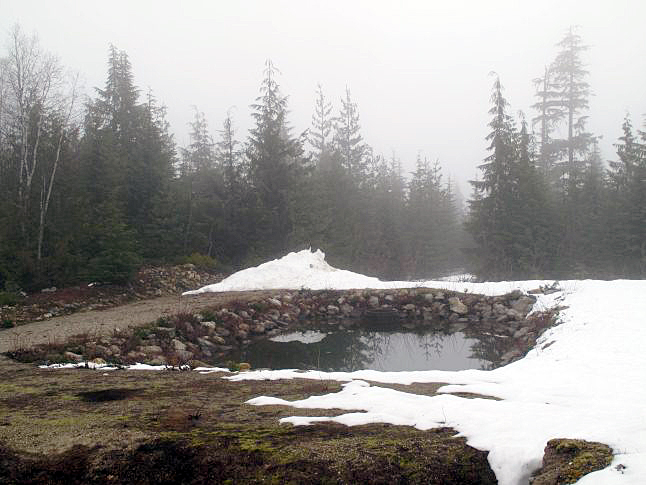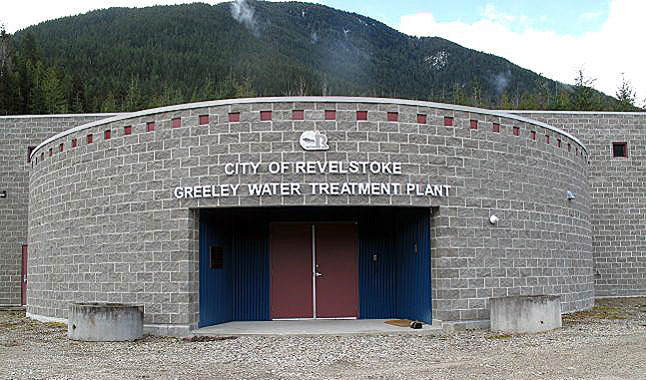
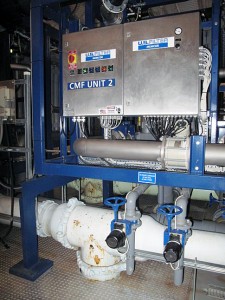
By Laura Stovel
BC Hydro’s Power Smart Program has a series of clever TV ads that show people wasting copious amounts of paper, water, apples and other goods. The ad says “The most ridiculous thing about wasting power is that for some reason we don’t think it is ridiculous.”
Doug Pendergast, utilities foreman at the Revelstoke Water Treatment Plant, wants Revelstokians to know that wasting water is also throwing money down the drain. Whether we are drinking a glass of water, showering, washing a car or watering our lawns, most of us use water that comes from the Greely Water Treatment Plant. That water has been treated to a level that assumes we could drink it or use it for cooking. As Pendergast said, that makes the water used for washing down a driveway for the third time deluxe water indeed.
“People say we have lots of water,” Pendergast said as he shows us the enormous equipment that cleans the water at the Greeley Water Treatment Plant. “But now we’re restricted to the amount we can filtrate.” While water always cost money to deliver, before 1996 “the water was not chlorinated” and didn’t require the level of purification that it does today, he said.
Most people in Revelstoke are not aware that water restrictions apply all year, not just during the
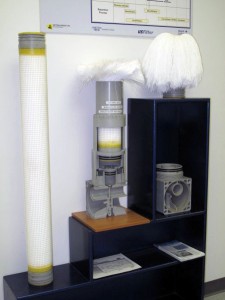
summer, Pendergast said. Watering “for sprinkling, irrigation,” and washing “driveways, sidewalks and roadways” is only allowed between 6:00 and 10:00 in the morning “at even numbered property addresses on even numbered calendar days and odd numbered property addresses on odd numbered calendar days”, according to the City of Revelstoke website. “It used to be 6:00 to 10:00 morning and night,” Pendergast said, “but people would leave the water on all night. Now it’s only allowed in the morning.”
As summer approaches, Pendergast knows that water use will escalate. The day before our visit in late April, the plant filtered 1,484,000 gallons of water but in the summer it will double to more than three million gallons a day. “In the summertime people waste so much water that these units are just screaming,” Pendergast said. “People don’t understand” the impact of the water they are wasting. “Before I got into this profession I was just as bad,” he said.
As a result of similar concerns, many towns have chosen to go to water metering. Pendergast mentioned that many government grants are going to be tied to having a metering program in place.
In 2010, the City spent approximately $487,000 on the Greeley Creek Water Treatment Plant, including money spent paying off debt and interest on that debt. While much of that cost is fixed, some costs could be saved in chlorine, energy, wear and tear of equipment and the delayed need for upgrading, if less water were consumed.
Pendergast is outspokenly proud of the water treatment plant and is passionate about water conservation and management. “I’m hands-on. I started in the ditch,” he said. He started working for the city in 1998 and trained under then-utilities foreman Don Manson.
In early 2010, Pendergast took over running the plant from Manson and implemented a few changes. One major change was a reduction in the amount of chlorine used in the system. “I put in .73 parts per million of chlorine residual,” he said, down from 1.2 parts per million previously used. The first customer in the 109 kms of water main will have the largest amount of chlorine and the last customer must have at least a 0.2 residual of chlorine, he explained.
Here is a selection of additional photos:
